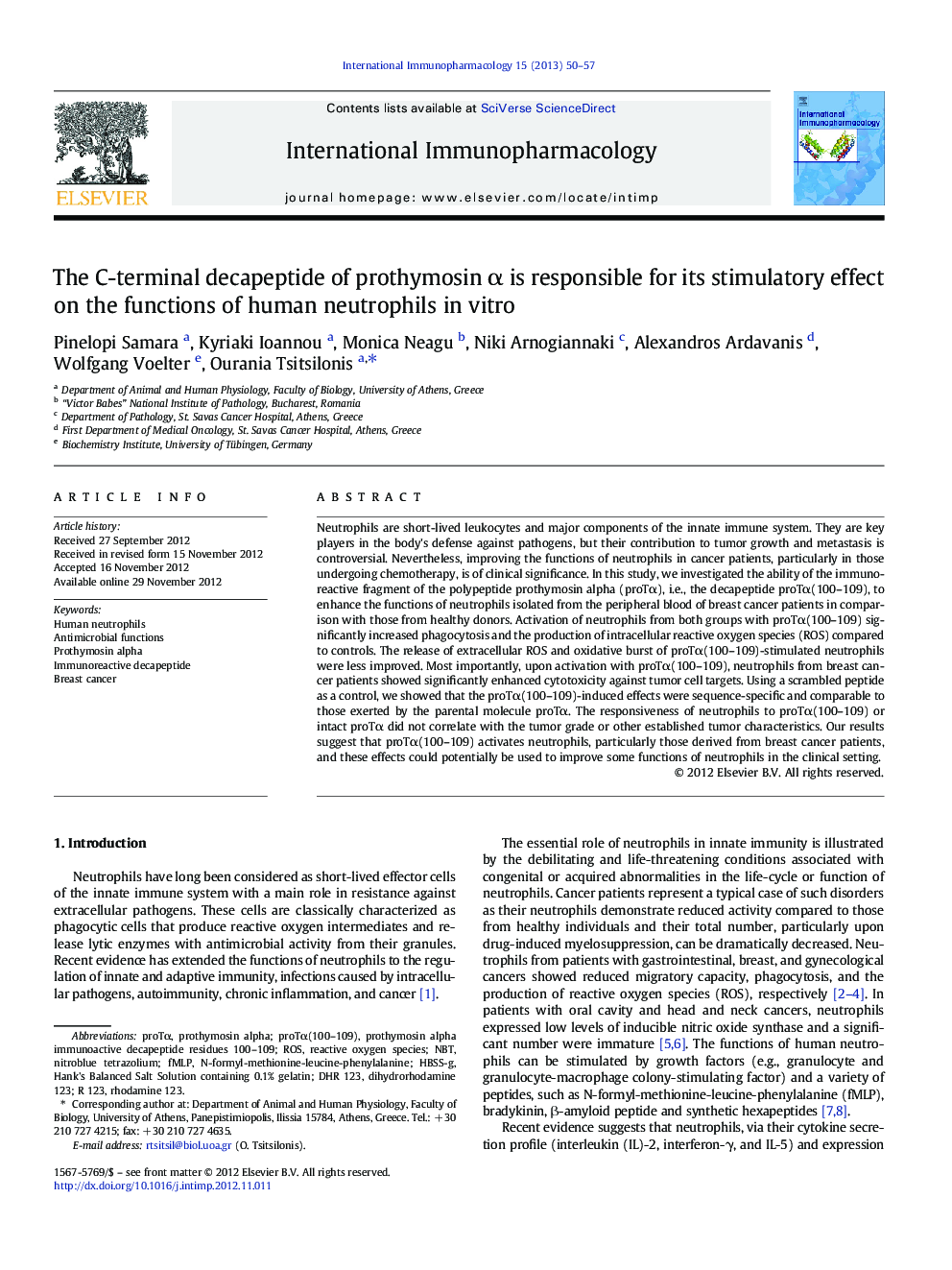| کد مقاله | کد نشریه | سال انتشار | مقاله انگلیسی | نسخه تمام متن |
|---|---|---|---|---|
| 2540926 | 1122623 | 2013 | 8 صفحه PDF | دانلود رایگان |

Neutrophils are short-lived leukocytes and major components of the innate immune system. They are key players in the body's defense against pathogens, but their contribution to tumor growth and metastasis is controversial. Nevertheless, improving the functions of neutrophils in cancer patients, particularly in those undergoing chemotherapy, is of clinical significance. In this study, we investigated the ability of the immunoreactive fragment of the polypeptide prothymosin alpha (proTα), i.e., the decapeptide proTα(100–109), to enhance the functions of neutrophils isolated from the peripheral blood of breast cancer patients in comparison with those from healthy donors. Activation of neutrophils from both groups with proTα(100–109) significantly increased phagocytosis and the production of intracellular reactive oxygen species (ROS) compared to controls. The release of extracellular ROS and oxidative burst of proTα(100–109)-stimulated neutrophils were less improved. Most importantly, upon activation with proTα(100–109), neutrophils from breast cancer patients showed significantly enhanced cytotoxicity against tumor cell targets. Using a scrambled peptide as a control, we showed that the proTα(100–109)-induced effects were sequence-specific and comparable to those exerted by the parental molecule proTα. The responsiveness of neutrophils to proTα(100–109) or intact proTα did not correlate with the tumor grade or other established tumor characteristics. Our results suggest that proTα(100–109) activates neutrophils, particularly those derived from breast cancer patients, and these effects could potentially be used to improve some functions of neutrophils in the clinical setting.
► ProTα is a TLR4 agonist with immunomodulatory activity.
► The C-terminal decapeptide proTα(100–109) enhances the functions of neutrophils from normal donors.
► ProTα(100–109) restores the suppressed functions of neutrophils from breast cancer patients.
► ProTα(100–109) is equally effective as proTα in stimulating neutrophil functions.
Journal: International Immunopharmacology - Volume 15, Issue 1, January 2013, Pages 50–57